On December 17, 2021, the academic results of Mogan-1 and Tianmu-1 superconducting quantum chips were released by Zhejiang University at ZJU-Hangzhou Global Scientific and Technological Innovation Center, proclaiming that quantum science and technology of Zhejiang Province is taking a big stride forward.
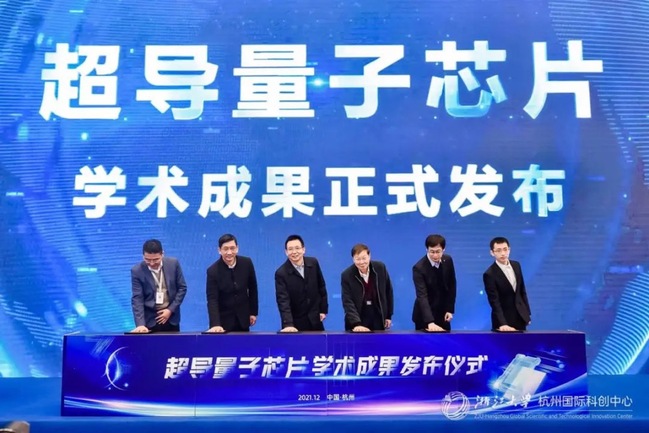
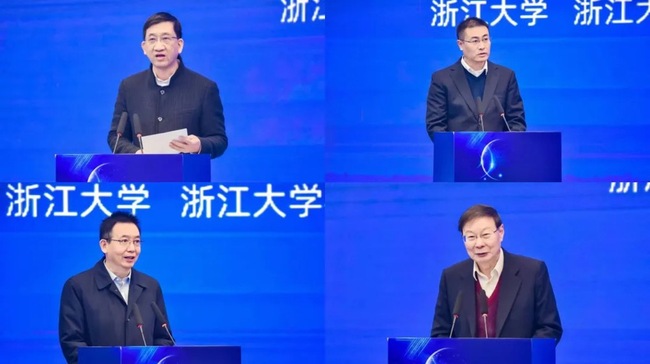
Mr. Yan Jianhua, Standing Member of the CPC Committee and Vice President of Zhejiang University, Mr. Ni Shiying, Vice Mayor of Xiaoshan District, Academician Yang Deren, Chief Scientist of the Center, and Mr. Zhu Shiyao, Academician of the Quantum Computing Innovation Workshop, were present at the event and delivered speeches, encouraging the quantum team to bear the “Great ambitions of China” in mind and work for the key and core technologies. The event was hosted by Yang Jianyi, Director of the Center.
Unveiling Tianmu-1 and Mogan-1
The protagonists today are two fingernail-sized chips in front of us: Mogan-1 and Tianmu-1 superconducting quantum chips. Mogan-1, a special quantum chip with a fully connected architecture, is applied to quantum simulation and precise regulation of quantum states for specific problems. The team, with Mogan-1 chip, has systematically investigated the Stark multibody localization in quantum multibody physics, a topic of great attention, and has characterized the Stark multibody localization from various perspectives, including the system’s memory of the initial state and the spatial scale of quantum entanglement. The result has been published in Physical Review Letters [127, 240502 (2021)], a leading journal in physics.
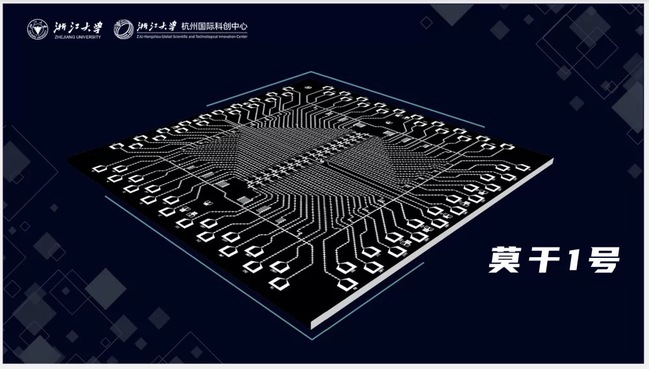
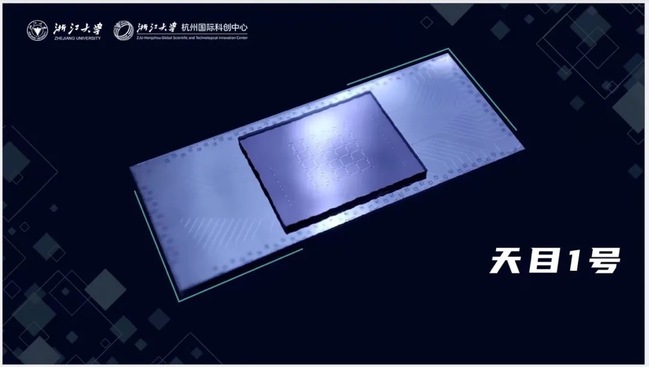
The simulation of quantum multibody systems using superconducting quantum chips, an exciting area that differs from classical numerical simulations based on supercomputers, is a novel research tool that will greatly facilitate the study of complex multibody systems. The team has owned patented technologies related to fully connected architecture chips and will continue to develop further in this field to serve more scholars.
Tianmu-1 chip, designed for general-purpose quantum computing, is applied with an easily scalable nearest-neighbor connectivity architecture. In order to perform relatively complex quantum gate circuit algorithms, 36 superconducting quantum bits with longer bit lifetimes (decoherence time about 50 microseconds) have been integrated into Tianmu-1 chip, realizing high fidelity general-purpose quantum gates (controlled phase gates with precision better than 98%).
Compared with Mogan-1, Tianmu-1 has higher programming flexibility to perform quantum algorithms of varieties, so it can be applied to more research fields. The team has recently made breakthroughs in increasing coherence time, and the “Tianmu” chips with higher performances to be developed will continue to serve the society.
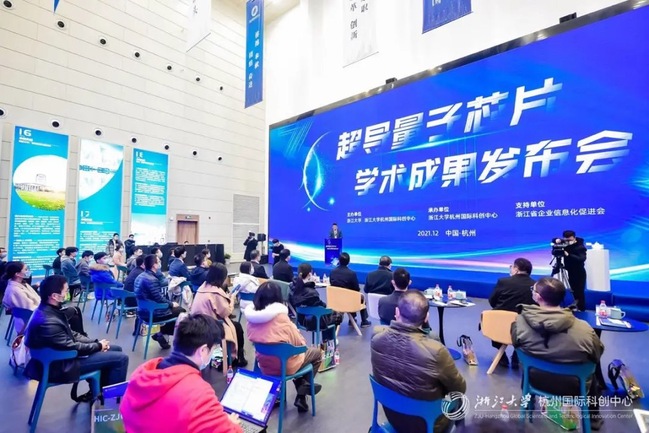
In addition, apart from the self-developed and prepared Mogan-1 and Tianmu-1, the team has had a full-stack R&D capability from superconducting quantum chip design, preparation, packaging to measurement and control. Meanwhile, the team has also built an integrated quantum measurement and control platform with advanced world level, which can be used for a variety of complex quantum experiments.
Based in Zhejiang, Serving China and Facing the World
The R & D team of Mogan-1 and Tianmu-1 is led by Academician Zhu Shiyao, an expert in quantum optics, professor of physics at Zhejiang University and chief scientist of the Quantum Computing Innovation Workshop of ZJU-Hangzhou Global Scientific and Technological Innovation Center. Academician Zhu said China has reached the advanced world level in some parts of quantum information and quantum communication; however, the sci-tech progress is just like a race of running. We will be lagging behind if we don’t run faster than others, as every country is running hard.
Rome was not made in one day. Zhejiang University began to layout its superconducting quantum computing more than ten years ago and the Quantum Computing Innovation Workshop of ZJU-Hangzhou Global Scientific and Technological Innovation Center was set up in 2021, providing holistic support for quantum R & D. With the participation of more members, the team has been devoting their youth and energy to the quantum science and technology of China.
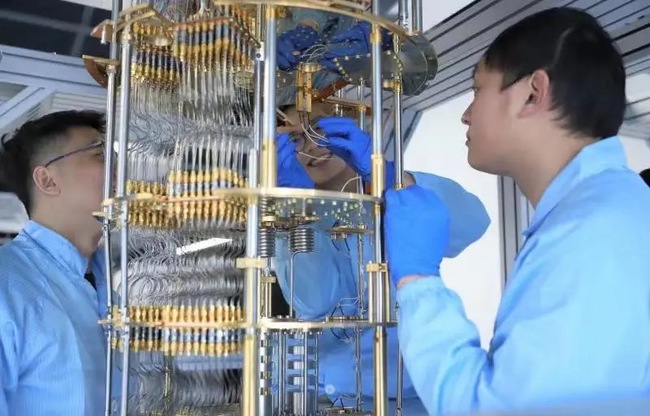
In recent years, the team has achieved a series of research results and published 20-odd articles in Science, Nature Physics, Physical Review Letters and other top journals as the primary author.
Many of the team members in this project were born after 1990s, and they are the young force, running day and night, for the research and development of quantum technology, as commented by Academician Zhu.
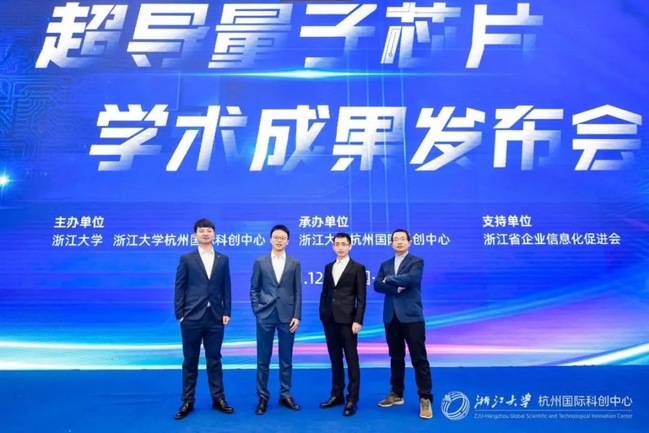
Key Members of the R & D Team
They claimed that “Mogan” and “Tianmu”, named after the famous Mogan Mountain and the Tianmu Mountain of Zhejiang Province, symbolize the ambition of the team to be based in Zhejiang, serve China and face the world.
The researchers believed quantum computers have great prospects for application. Though at an initial stage, the quantum information era will be realized with the concerted efforts of researchers.
What is superconducting quantum chips?
Quantum computing is a major area of quantum technology applications. Recently, the R & D of quantum computers has become a top-notch field of global science and technology strategy that every country is vying for and quantum chip development is the core of quantum computer research.
Quantum bit is the basic unit in quantum computing. Unlike classical bits, which are either 0 or 1, a quantum bit can be in both 0 and 1 states, and when the number of quantum bits increases, the corresponding state shows an exponential explosion carrying more information, which is the key to quantum acceleration. Superconducting quantum chips, electronic circuits based on superconducting Josephson junctions, can be flexibly constructed by semiconductor micro and nano processes, so they are considered the most promising and practical of quantum chips.
Three dimensions: the number of quantum bits, decoherence time (the lifetime of quantum bits), and manipulation precision, are generally used to evaluate superconducting quantum chips. A practical superconducting quantum chip is one which takes into consideration the three dimensions. Only when the three dimensions reach good indexes can quantum computing be realized quickly and precisely.












